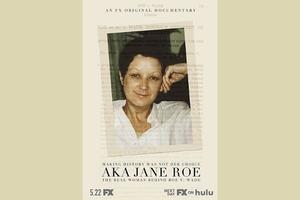Overturning Roe v. Wade Will Be a Victory for ‘Roe’ and ‘Doe’ Alike
COMMENTARY: The similarities between ‘Jane Roe’ and ‘Mary Doe,’ two unwitting plaintiffs in landmark Supreme Court abortion cases, are astounding.

As the nation awaits a Supreme Court decision expected to overturn Roe v. Wade, many Americans likely are unaware that on the day the opinion in that case was announced in 1973, a companion case also was decided.
Doe v. Bolton took up the case of a Georgia woman who, like Norma McCorvey — the Roe in Roe v. Wade — was used by abortion advocates whose ultimate goal was legal abortion without restriction.
The similarities between the two women, Norma in Texas and Sandra in Georgia, are astounding. Both became my friends.
In 1969, Norma was in her early 20s, divorced, pregnant for a third time and working with an adoption lawyer when attorneys Sarah Weddington and Linda Coffee came into her life, bringing with them an unspoken agenda to legalize abortion. Norma was basically homeless so, grateful for the lunch they bought her, she agreed to sign on as their plaintiff, Jane Roe.
In 1970, pregnant with her fourth child, with two of her children in foster care and a third placed with an adoptive family, her husband in and out of jail for child molestation, Sandra Cano went to the Atlanta Legal Aid Office for help getting a divorce and regaining custody of the children in foster care. She was not looking for an abortion.
Sandra was introduced to attorney Margie Pitts Hames, who found in Sandra a woman who could be manipulated in much the same way lawyers in Texas were using Norma. Sandra would become known as Mary Doe and would not learn for decades that Hames did not work for Legal Aid.
On behalf of her client, Hames joined a lawsuit in Georgia federal district court that sought to overturn the state’s abortion law. At the time, abortion was legal only for rape, if the mother’s life was in danger or in cases of a severe fetal anomaly. In Doe v. Bolton, the district court struck down parts of the Georgia abortion law and upheld others.
“The records that stated that I wanted an abortion, that was totally false,” Sandra told Father Frank Pavone in an interview from the 1990s.
A court document in that case indicated that Sandra had tried to have an abortion at a hospital in Atlanta but was turned down. Like so much of this case, that was a lie made up by Sandra’s legal team.
Prior to her case going before the judge, Sandra was scheduled for an abortion she never wanted; her lawyers even raised the money. She ran away to Oklahoma to stay with in-laws, only agreeing to return for the hearing after being promised she would not be forced to abort her baby. She gave birth to that child on Nov. 7, 1970, and made an adoption plan.
Norma never had an abortion, either. Her lawyers knew before taking on her case that it would never be settled before her due date. The wishes of their client apparently were none of their concern.
As the cases churned their way through the federal courts, the two women became afterthoughts. Roe v. Wade and Doe v. Bolton were argued before the Supreme Court on Dec. 13, 1971, but because the Court was short two justices due to retirements, the cases were argued again on Oct. 11, 1972.
On Jan. 22, 1973, the same seven justices found for the plaintiffs in both cases, striking down the Texas law, invalidating what remained of the Georgia law and intuiting in our Constitution a right to abortion that remains questionable to this day.
Attorney Hames phoned Sandra with the news that women all over the country would now be able to abort their babies at any time in pregnancy and for any reason. Norma read about it in a Dallas newspaper.
Norma’s journey after that is well known. She went to work at an abortion center but was not liked there because she asked women if they understood what they were doing and whether they were sure about abortion. The pro-abortion movement tried to use Norma as their poster child but they found her too rough around the edges.
Ultimately Norma became pro-life, was baptized a Christian and later entered the Catholic Church. She wrote about her journey in her 1997 book Won by Love.
Sandra remained out of the spotlight for the most part. The two women met on a few occasions and became friends as they worked to overturn Roe and Doe.
“I felt guilty for a lot of years, but I’m a victim just like the babies,” Sandra told Father Pavone in her interview. “I had no part in it.” Sandra urged women with unplanned pregnancies to consider adoption because there’s always a chance of being reunited in the future, as she was with her child.
“With abortion,” she said, “there’s never any hope.”
Norma and Sandra are now deceased so will not get to see the end of legal abortion on the national level. In September Texas enacted a law protecting babies from abortion once a heartbeat can be detected, and the state is expected to activate a trigger law that will make all abortion illegal 30 days after the Supreme Court overturns Roe.
Georgia does not have a trigger law but HB 481, passed amid much hysteria in 2019 — you might remember the B- and C-list celebrities vowing never to work in Georgia again — would protect babies after six weeks once Roe is overturned.
I am eternally grateful to have been able to intersect with these remarkable women in history and to call them friends. I pray they can now rest in peace.
- Keywords:
- norma mccorvey
- roe v. wade

















